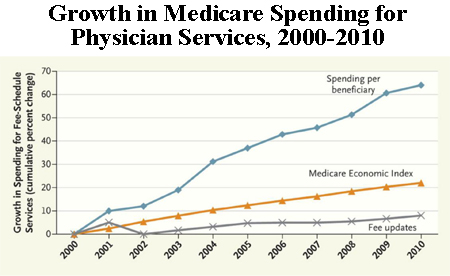[C]hanges included in the so-called “Affordable Care Act” drastically cut payments to Medicare Advantage plans starting in 2013, driving many MA plans out of business, and forcing the surviving plans to slash benefits. According to a recent study I wrote with Michael Ramlet, these cuts will cause the beneficiaries in the average county (MA plans are offered on a county-level basis) to lose two-thirds of their MA plan choices by the time the new payment formula is fully phased in in 2017….
The average beneficiary — considering both those who stay in the stripped-down MA program, and those who transition out of it — will incur an average cut of more than $3,700 in benefits per year by 2017.
The decline in both plan offerings and in enrollment will vary substantially across the country. In Texas, for example, beneficiaries will face an average loss of more than three quarters of plan offerings per county by 2017….
The percentage of beneficiaries pushed out of the program ranges from 38 percent in Montana to a 67 percent in Washington, D.C., and 84 percent in Puerto Rico. Average benefit losses range from a low of $2,780 in Montana to a high of $5,092 in Louisiana.
Full Robert Book post here. See our previous posts here and here.




